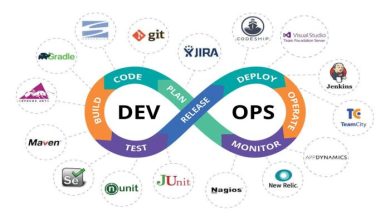Evaluating Developer Proficiency: The Organizing skills test

In the ever-evolving landscape of software development, assessing developer proficiency goes beyond just coding skills. It’s about identifying individuals who can not only write great code but also effectively manage projects, collaborate with teams, and navigate complex technical challenges. Enter the Organizing Skills Test – a pivotal tool in the arsenal of modern hiring processes.
Imagine this: You’re tasked with assembling a team to tackle a high-stakes project. You need developers who can not only write clean and efficient code but also organize tasks, streamline workflows, and ensure seamless collaboration among team members. This is where the Organizing Skills Test comes into play.
But what exactly is the Organizing Skills Test, and why is it gaining traction in the tech industry? In this blog post, we’ll delve into the intricacies of this assessment method, exploring its purpose, components, and significance in evaluating developer proficiency. We’ll also discuss real-world examples of how strong organizing skills can make or break a development project, highlighting the critical role this test plays in identifying top-tier talent.
Understanding the Organizing Skills Test
So, what exactly is the Organizing Skills Test and why is it such a game-changer in the world of developer proficiency assessment? Let’s break it down.
The Organizing Skills Test is a comprehensive evaluation method designed to assess a developer’s ability to effectively manage tasks, streamline workflows, and facilitate collaboration within a team setting. Unlike traditional coding assessments that focus solely on technical prowess, this test delves into the softer skills that are often overlooked but equally essential in today’s dynamic software development landscape.
At its core, the Organizing Skills Test evaluates how well a developer can structure and prioritize tasks, allocate resources efficiently, and communicate effectively with team members. From creating project timelines to coordinating efforts across different departments, the test provides valuable insights into a candidate’s organizational acumen and their potential to thrive in a collaborative work environment.
In essence, the Organizing Skills Test goes beyond just writing code—it assesses a developer’s ability to navigate the complexities of real-world projects, ensuring they have the holistic skills needed to drive success in today’s fast-paced tech industry.
The Role of the Organizing Skills Test in Assessing Developer Proficiency
In the world of software development, technical expertise is undoubtedly crucial. However, the ability to effectively organize and manage projects is equally—if not more—important. This is where the Organizing Skills Test steps in as a valuable tool in assessing developer proficiency.
Unlike traditional coding assessments that primarily focus on technical skills, the Organizing Skills Test evaluates a developer’s capacity to manage tasks, communicate effectively, and collaborate with team members. These skills are essential for navigating the complexities of modern software development projects, where success often hinges not only on writing code but also on coordinating efforts and adapting to changing priorities.
By incorporating the Organizing Skills Test into the hiring process, organizations can gain deeper insights into a candidate’s capabilities beyond their coding abilities. They can identify individuals who not only possess the technical know-how but also demonstrate strong organizational skills, making them valuable assets to any development team.
In essence, the Organizing Skills Test plays a pivotal role in ensuring that developers not only write great code but also contribute to the overall success of projects through effective organization and collaboration.
Implementing the Organizing Skills Test: A Case Study
To truly understand the impact of the Organizing Skills Test on assessing developer proficiency, let’s dive into a real-life scenario of its implementation.
Imagine a tech company faced with the challenge of expanding its development team to meet growing project demands. In their search for top-tier talent, they decide to incorporate the Organizing Skills Test into their hiring process.
As candidates undergo the test, the company begins to notice a significant shift in their selection criteria. While technical expertise remains important, they now place equal emphasis on a candidate’s ability to organize tasks, communicate effectively, and collaborate with team members.
After implementing the test, the company experiences tangible benefits. They not only attract candidates who excel in coding but also discover individuals who bring a unique blend of technical proficiency and strong organizational skills to the table. As a result, project workflows become more streamlined, communication among team members improves, and the overall efficiency of the development process increases.
Through this case study, it becomes evident that the Organizing Skills Test isn’t just another assessment tool—it’s a catalyst for identifying developers who can thrive in today’s collaborative and fast-paced software development environments.
Comparing the Organizing Skills Test with Other Assessment Methods
In the realm of developer proficiency assessment, the Organizing Skills Test stands out as a unique tool. But how does it stack up against other assessment methods, such as the Kafka and Insurance Agent tests? Let’s explore.
While the Kafka test evaluates a developer’s ability to handle real-time data processing using Kafka, and the Insurance Agent test assesses skills relevant to the insurance industry, the Organizing Skills Test takes a broader approach. It focuses on evaluating a candidate’s organizational skills, communication abilities, and collaboration prowess—qualities that are universally applicable across various development roles and industries.
One key distinction is that the Organizing Skills Test doesn’t solely rely on technical knowledge. Instead, it places equal emphasis on soft skills essential for project management and teamwork. This holistic approach ensures that candidates selected based on the Organizing Skills Test not only possess the necessary technical acumen but also demonstrate the capacity to excel in collaborative environments.
By comparing these assessment methods, organizations can gain insights into the strengths and limitations of each approach. While specialized tests like Kafka and Insurance Agent assessments have their place, the Organizing Skills Test offers a more comprehensive evaluation of a developer’s potential to thrive in diverse development settings.
Tips for Success in the Organizing Skills Test
Preparing for the Organizing Skills Test can significantly enhance a developer’s chances of success. Here are some practical tips to help you ace the test:
- Understand the Criteria: Familiarize yourself with the key components and criteria evaluated in the Organizing Skills Test. This includes tasks such as prioritizing assignments, creating project timelines, and effectively communicating with team members.
- Practice Time Management: Time is often limited during the test, so practice managing your time efficiently. Set aside dedicated time slots for each task and prioritize them based on importance and urgency.
- Hone Communication Skills: Strong communication skills are essential for effective collaboration. Practice conveying your ideas clearly and concisely, whether through written communication or verbal discussions.
- Collaborate Effectively: The test may include scenarios that require teamwork. Practice collaborating with others, actively listening to their input, and contributing constructively to group discussions and decision-making processes.
- Seek Feedback: After completing practice tests or mock scenarios, solicit feedback from peers or mentors. Use their insights to identify areas for improvement and refine your approach.
- Stay Calm and Focused: Test environments can be stressful, but try to stay calm and focused. Take deep breaths, stay organized, and tackle each task methodically.
Conclusion
In the fast-paced world of software development, evaluating developer proficiency is paramount. While technical skills are essential, the ability to organize tasks, communicate effectively, and collaborate with team members is equally crucial. The Organizing Skills Test emerges as a valuable tool in this regard, offering a comprehensive assessment of a candidate’s capabilities beyond just coding prowess.
By incorporating the Organizing Skills Test into their hiring processes, organizations can identify developers who possess the holistic skill set needed to thrive in today’s collaborative work environments. From creating project timelines to coordinating efforts across teams, strong organizational skills can make all the difference in the success of development projects.
As we conclude our exploration of the Organizing Skills Test, it’s clear that this assessment method goes beyond traditional coding assessments, providing deeper insights into a candidate’s potential to contribute to project success. Whether you’re a developer preparing to take the test or an organization considering its implementation, recognizing the value of organizational skills is key to driving excellence in software development. So, embrace the Organizing Skills Test, and empower your teams to reach new heights of success in the dynamic world of tech.



